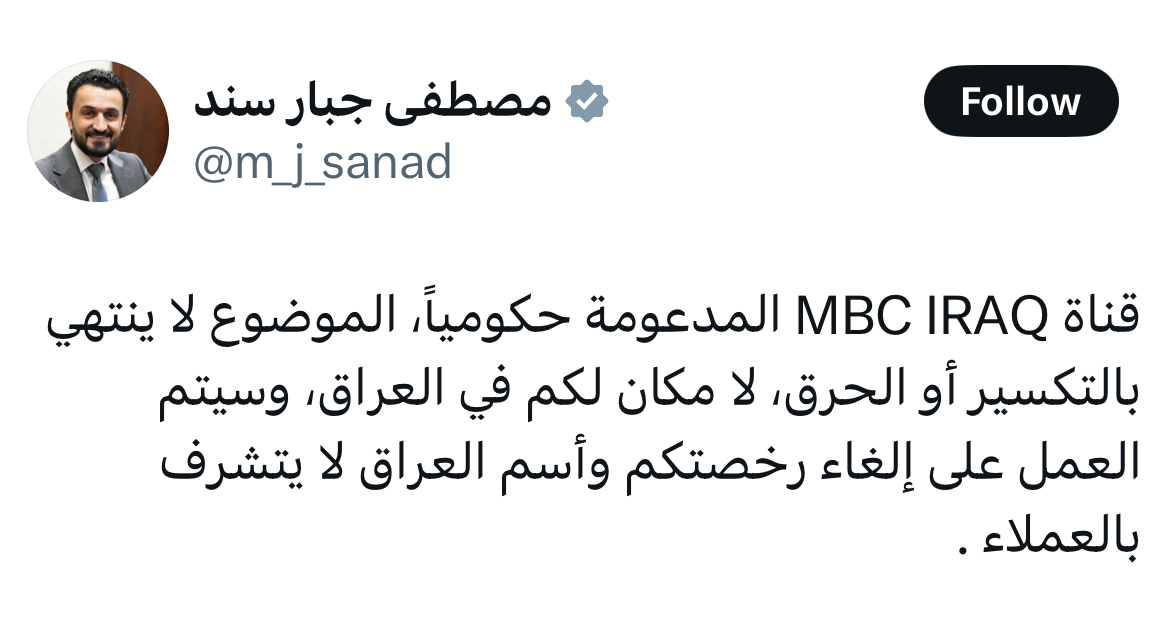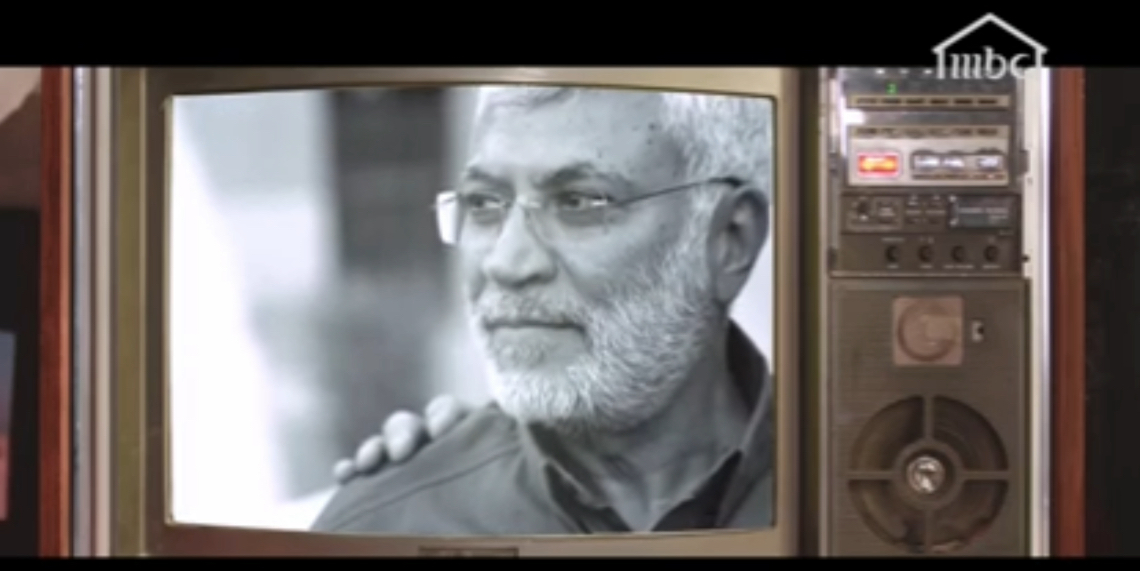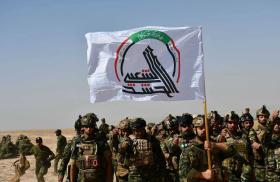Militia Mob Attacks Saudi MBC Channel in Baghdad
Provocative Gulf coverage of terrorist leader deaths spurred Kataib Hezbollah to unleash mob violence against the network's Baghdad offices.
As part of the October 19 episode of its program In A Week, the Saudi state-funded satellite television channel MBC broadcast a segment with the title “Millennium of Salvation from Terrorists,” showing Iran-backed militants who have been killed by Israel and the United States. Amid imagery of Lebanese Hezbollah leader Hassan Nasrallah, Hamas leaders Ismail Haniyeh and Yahya al-Sinwar, Iraqi militia leader Abu Mahdi al-Muhandis, and others, the program stated, “The world has rid itself in this millennium of many terrorist figures who terrorized the world and shed blood” (Figure 1).
Although broadcast from outside Iraq and intended for broader Arab audiences, the daring content quickly captured the attention of Iraqi muqawama (resistance) media. Telegram accounts associated with these outlets quickly issued calls to attack MBC headquarters in Baghdad (most notably Sabereen News). Despite the resultant riot being small in size, and despite Iraqi security forces having advance notice of the incident, muqawama militants were still able to force entry into the MBC building and set it afire. During the riot, individuals were seen carrying the flags of the Iran-backed militia Kataib Hezbollah (KH) and the Popular Mobilization Forces (PMF).
Official Saudi and Iraqi Efforts to Placate Militias
Just hours after the segment aired, the Saudi General Authority for Media Regulations put out the following statement: “The General Authority for Media Regulation has referred officials from a television channel for investigation due to a news report that breached the media policies and regulations of the Kingdom, to complete the necessary legal procedures regarding this violation. The Authority confirms that it continues to monitor the compliance of media outlets with the Kingdom's regulations and content guidelines and will not hesitate to enforce the law against any violations.”
The Iraqi government likewise took steps to discipline MBC. The state-run Iraqi Media Network reported that “the Board of Commissioners of the Communications and Media Commission (CMC) decided to cancel the license of MBC satellite channel and directs the executive body of the commission to stop its operations in Iraq” (Figure 2). Although decisions like these are usually published through CMC documents or official statements, no image of such a document has been publicly released or mentioned on CMC's social media accounts. This suggests that the cancelation report was an unofficial move intended to salve anger; whatever the case, MBC Iraq is still active and airing its programs as of this writing.

In addition, several Iraqi political figures issued statements following MBC’s program, most notably the KH-leaning member of parliament Mustafa Sanad, who tweeted, “To MBC Iraq, which is government-supported: the issue does not end with breaking or burning. You have no place in Iraq, and work will proceed to cancel your license. The name of Iraq does not honor traitors" (Figure 3).
MBC’s Prior Problems in Iraq
Although the program was aired by MBC's main channel, Sanad linked it to the MBC Iraq channel, which was launched in 2019 with a focus on influencing the Iraqi public with programs that could compete with local channels. Since its launch, MBC Iraq has faced significant challenges, with the muqawama repeatedly targeting the channel for allegedly portraying Iraq's southern Shia population as less educated.

In May 2020, MBC Iraq aired a program showing the life of the famous Arab poet Nazar Qabani, who lost his wife during an Iran-backed terrorist attack on the Iraqi embassy in Lebanon in 1981. MBC portrayed Muhandis as the terrorist who carried out the attack (Figure 4), triggering another riot in which muqawama attackers forced entry into MBC's building. Following that event, MBC suspended its Baghdad operations and closed its office there for four months.
Militias Able to Threaten International Targets in Baghdad
The latest incident is a reminder that Iran-backed militia and terrorist groups are able to access many international targets in Iraq with relative ease, including foreign citizens, media figures, businesspeople, and investment properties. These are targets that Iran and Lebanese Hezbollah may not wish to directly or openly attack themselves, while other proxies (e.g., the Yemeni Houthis) may have only limited access to them. Iraq thus plays a potentially valuable role as a place where foreign equities are still present and can be threatened—loosely held hostage, in effect, by the broader Iran Threat Network.




